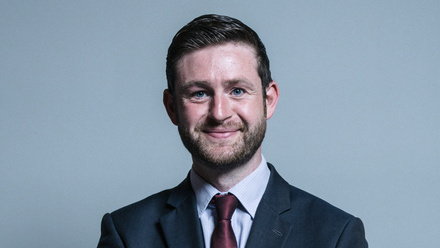Parish and town councils take centre stage at sold-out Power Shift 2025
On 23 June 2025, we hosted Power Shift 2025, a sold-out conference dedicated to putting parish and town councils at the forefront of meaningful devolution. The conference featured five focused sessions covering the new devolution bill, bespoke devolution deals, financial challenges, examples of devolution in action, and strategies for engaging with metro mayors.
The day began with opening remarks from our chair, Cllr Keith Stevens, who outlined the purpose of the event to explore how genuine devolution can empower parish and town councils and support stronger, more responsive governance. Cllr Stevens message emphasised collaboration, ambition, and the vital role of parish and town councils as leaders within their communities. Attendees were encouraged to actively contribute, share insights, and seize the opportunity to shape the future of local governance.
Our first speaker, Baroness Sharon Taylor of Stevenage, addressed what the new devolution bill could mean for parish and town councils. She highlighted that “Parish and town councils are uniquely placed to shape local services and strengthen communities” and are “close to the issues and trusted by the people”. She went on to say that “If we’re serious about levelling up through local leadership, we must match ambition with resource. That means proper training, access to expertise, and funding that reflects the scale of the task. This isn’t just a policy shift — it’s a recognition that the centre doesn’t have all the answers. Local solutions need local leadership”.
The second session featured a panel discussion with Melanie Brain of Cornwall Council, Trevor Holden of District Councils' Network Chief Executives Group and Mark Sandforth of Parliament and Constitution Centre, exploring the current devolution landscape. They emphasised the importance of place-based, tailored deals - especially for smaller councils - and underscored the need for active participation from parish and town councils in shaping those deals alongside district and combined authorities. Trevor Holden urged councils to be proactive, stating “You are the part that is closest to the communities you serve. Grab this agenda, look for the opportunities within it, and create a web that shapes your roles and responsibilities. The government is moving on devolution and local government reorganisation. It’s focusing on neighbourhood health, policing, skills. And who does ‘neighbourhood’ mean if not towns and parishes? Think big when you engage with your principal authorities. Don’t assume you have no authority in the room - you absolutely do”.
Amanda Card of Yeovil Town Council, led the third session, offering a practical case study on devolution in action. She shared Yeovil’s experience in taking on a significant service portfolio, including a theatre, leisure centre and country park. She spoke of strong community engagement, a focus on citizen voice, and how the council used these initiatives to advocate for change. Her session served as a powerful reminder that devolution isn’t just about policy - it’s about practices, community and local leadership that can be adopted now. The fourth session, hosted by Helen Ball of Shrewsbury Town Council, Philip Clifford of the Local Government Association and Dr Jonathan Carr-West of Local Government Information Unit, tackled the financial realities of devolution. The panel explored alternative funding models, including strategic partnerships, new grant opportunities, and cost recovery mechanisms. They drew on examples from parish and town councils that had managed to grow and maintain financial sustainability while expanding their service offer.
In the final session, Simon Kaye of think tank Re:State and Professor Steven Griggs at the University of Staffordshire examined how parish and town councils can build productive relationships with metro mayors and combined authorities. They offered practical strategies for framing local priorities in a way that aligns with city-region agendas, from attending consultations to arranging direct meetings. Their key take away was to be assertive, be early, and present your council as a delivery partner with the capacity to support regional goals.
Cllr Stevens closed the day with reflections and a call to action. He encouraged parish and town councils to stay connected through peer networks, tap into NALC’s support and training, and apply what they had learned to their local context.
The overarching message from Power Shift 2025 was one of momentum and empowerment. Parish and town councils must remain central to the devolution conversation and be equipped to lead in shaping the future of governance across England.
A heartfelt thank you to all our exhibitors — Blachere Illumination, CCLA, Clear Councils Insurance, Cloudy IT, Civic.ly, Insignis, ONH, Proludic, Rialtas, Unity Trust, Utility Aid, Woodland Trust, and WorkNest — and to all our attendees and speakers for making Power Shift 2025 a success.





